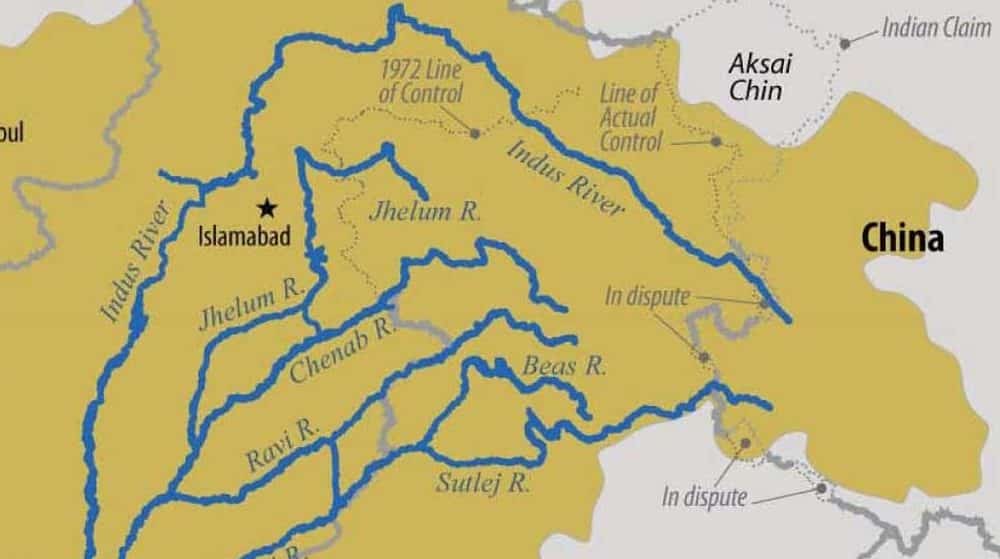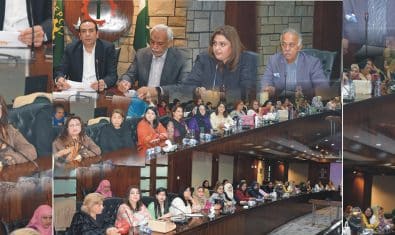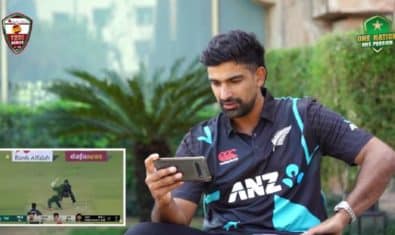Pakistan and India have failed to reach any agreement on the Kishenganga and Ratle hydroelectric power plants issues.
“While an agreement has not been reached at the conclusion of the meetings, the World Bank will continue to work with both countries to resolve the issues in an amicable manner and in line with the Treaty provisions”, said the World Bank (WB) in a statement.
Another round of the Secretary-level discussions between India and Pakistan on the technical issues of the Kishenganga and Ratle hydroelectric power plants within the framework of the Indus Waters Treaty took place on September 14-15 in Washington, D.C.
Both countries and the World Bank appreciated the discussions and reconfirmed their commitment to the preservation of the Treaty. While an agreement has not been reached at the conclusion of the meetings, the World Bank will continue to work with both countries to resolve the issues in an amicable manner and in line with the Treaty provisions.
The World Bank remains committed to act in good faith and with complete impartiality and transparency in fulfilling its responsibilities under the Treaty, while continuing to assist the countries.
The Pakistani delegation was led by Secretary Water Resources Division Arif Ahmed Khan along with Secretary of Water and Power Yousuf Naseem Khokhar, High Commissioner of Indus Waters Treaty Mirza Asif Baig and Joint Secretary of Water Syed Mehar Ali Shah.
The Indian delegation was led by the Union Water Resources Secretary Amarjit Singh with representatives from Ministry of External Affairs, Power, India’s Indus Water Commissioner and Central Water Commission.
First round meetings between Pakistan and India held on August, 1 2017 in Washington. After the meetings WB stated that India and Pakistan disagree about the construction of the Kishenganga (330 megawatts) and Ratle (850 megawatts) hydroelectric power plants being built by India (the World Bank is not financing either project).
The two countries disagree over whether the technical design features of the two hydroelectric plants contravenes the treaty or not.
The plants are on respectively a tributary of the Jhelum and the Chenab Rivers. The treaty designates these two rivers as well as the Indus as the “Western Rivers” to which Pakistan has unrestricted use. Among other uses, India is permitted to construct hydroelectric power facilities on these rivers subject to constraints that are specified in the Annextures to the treaty.
The IWT sets out a mechanism for cooperation and information exchange between the two countries regarding their use of the rivers, known as the Permanent Indus Commission, which has a commissioner from each country.
The treaty also sets forth distinct procedures to handle issues which may arise: “questions” are handled by the Commission; “differences” are to be resolved by a neutral expert; and “disputes” are to be referred to a seven-member arbitral tribunal called the “court of arbitration.”
The WB’s role in relation to “differences” and “disputes” is limited to the designation of people to fulfill certain roles when requested by either or both of the parties.
Pakistan asked the WB to facilitate the setting up of a court of arbitration to look into its concerns about the designs of the two hydroelectric power projects. India asked for the appointment of a neutral expert for the same purpose. These requests came after the Permanent Indus Commission had been engaged in discussions on the matter for a while.
During several months prior to December 12, 2016, the WB sought to fulfill its procedural obligations with respect to both the Court of Arbitration and the neutral expert. The treaty does not empower the WB to choose whether one procedure should take precedence over the other; rather it vests the determination of jurisdictional competence on each of the two mechanisms. At the same time, the WB actively encouraged both countries to agree amicably on a mechanism to address the issues.
On December 12, 2016, WB Group President Jim Yong Kim announced that the WB would pause before taking further steps in each of the two processes requested by the parties. This was done to safeguard the treaty, since referring the matter simultaneously to the processes sought by each of the countries risked contradictory outcomes and worked against the spirit of goodwill and friendship that underpins the treaty.
Since December 2016, the WB has worked towards an amicable resolution of the matter and to safeguard the treaty, maintained the WB.


























India Pakistan Se Cricket Series Khailna Nahi Chahta & Bat Ho Rahi Plant Agreement Ki
how are you sir, great to read your comments.
whats wrong with your grammar Propakistani. You can not mention 2 things separated with a comma use conjunction: and in title.
Propakistani is pro grammatical error. Just try to read “around it”.